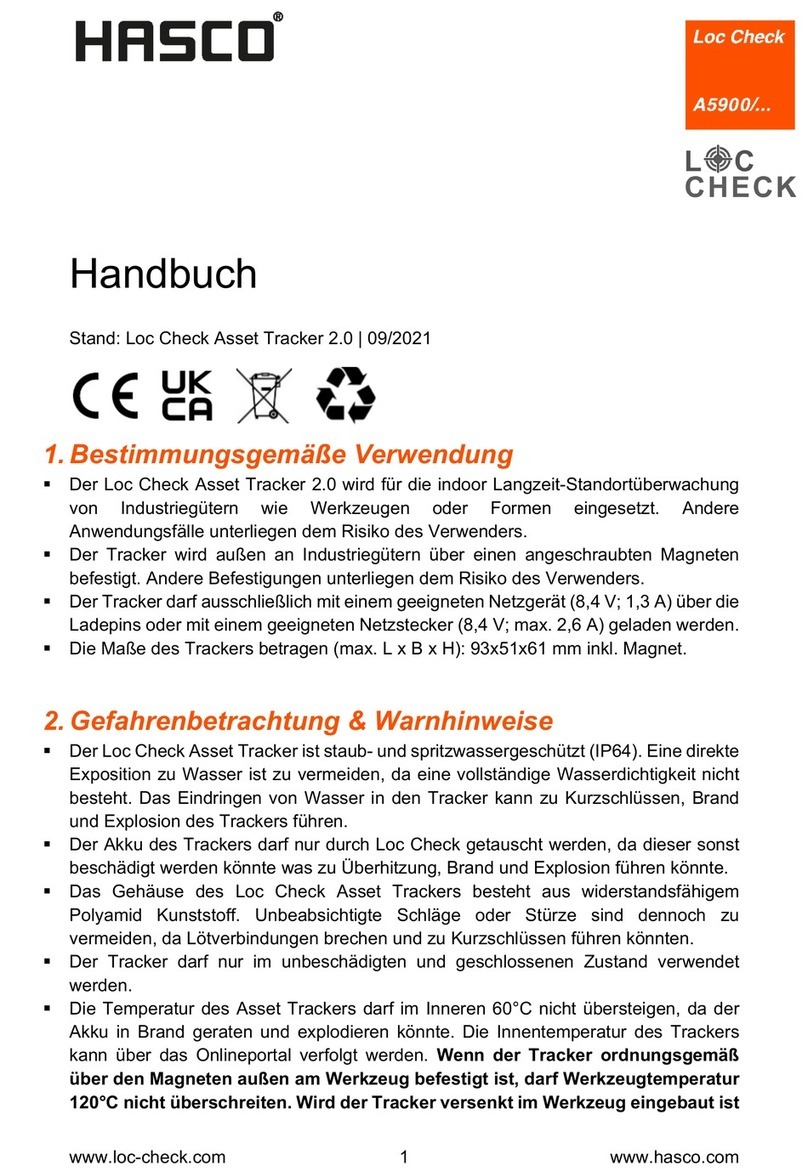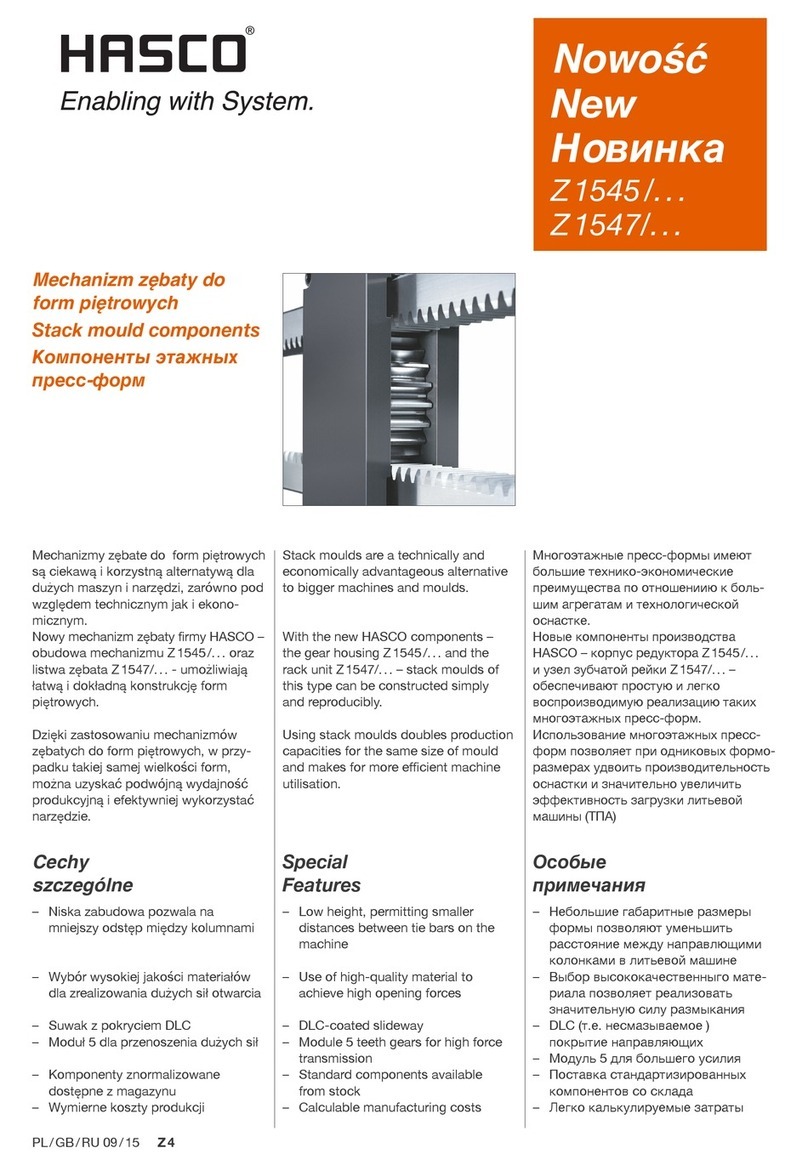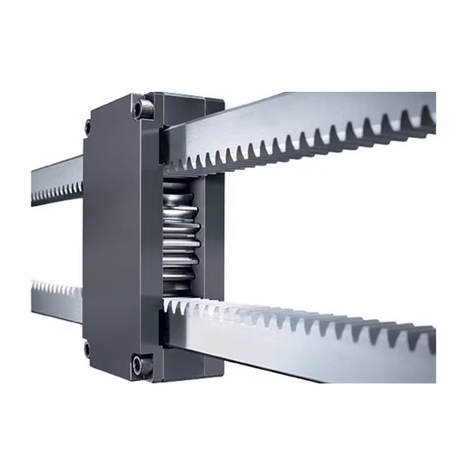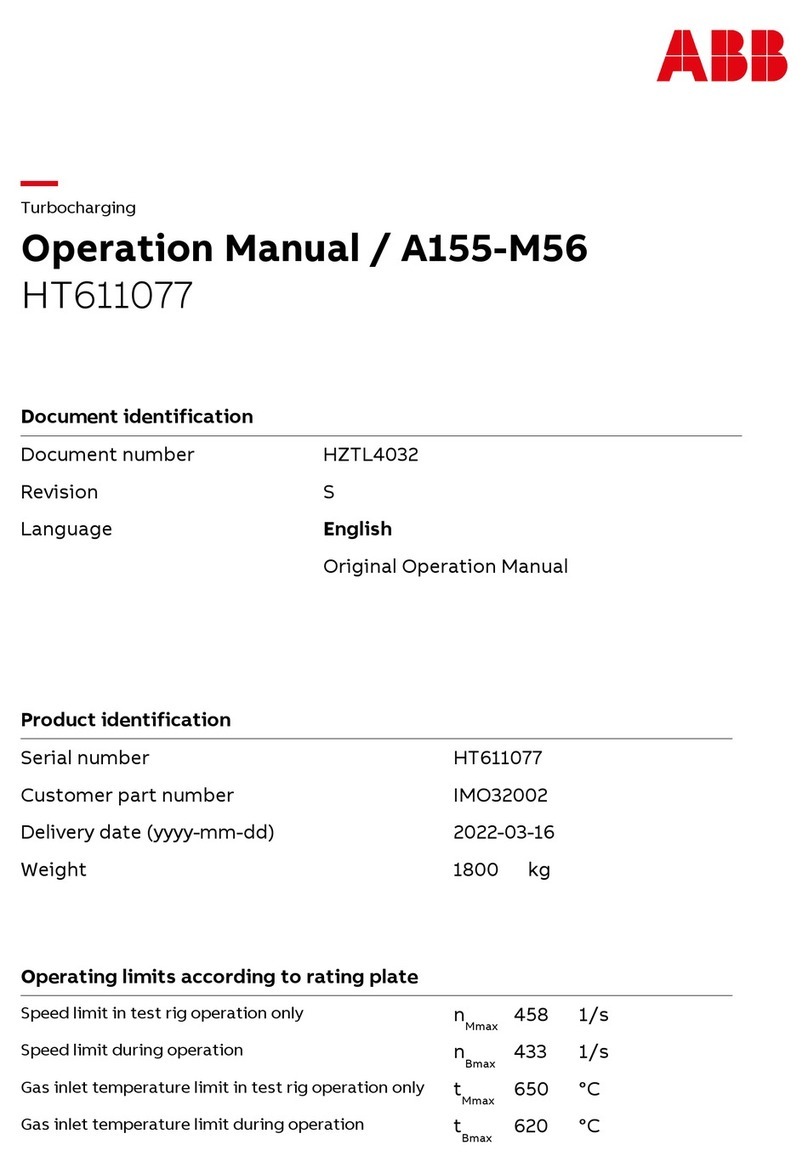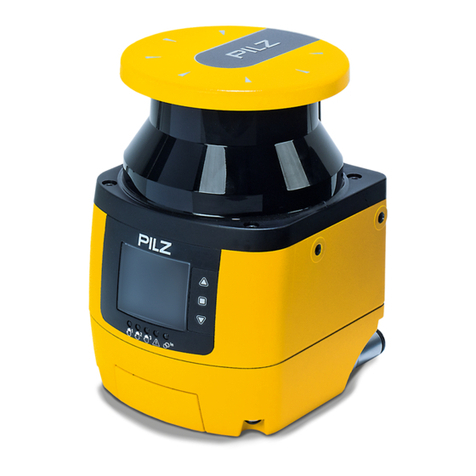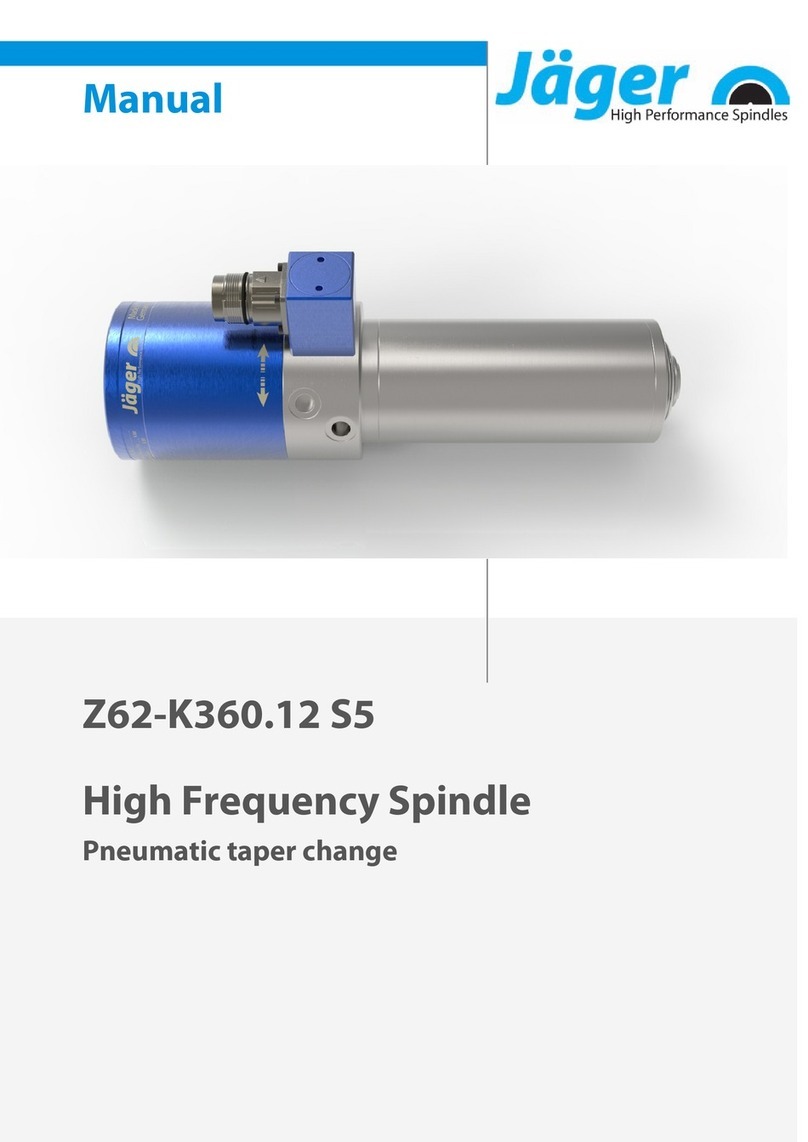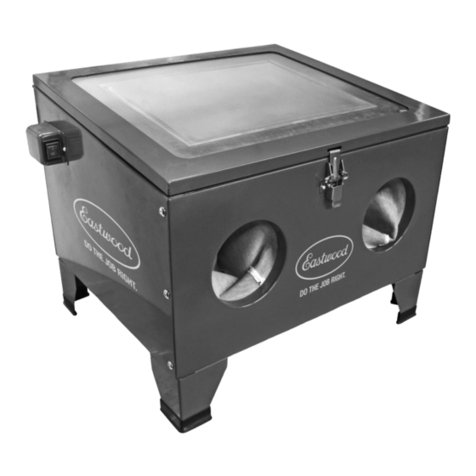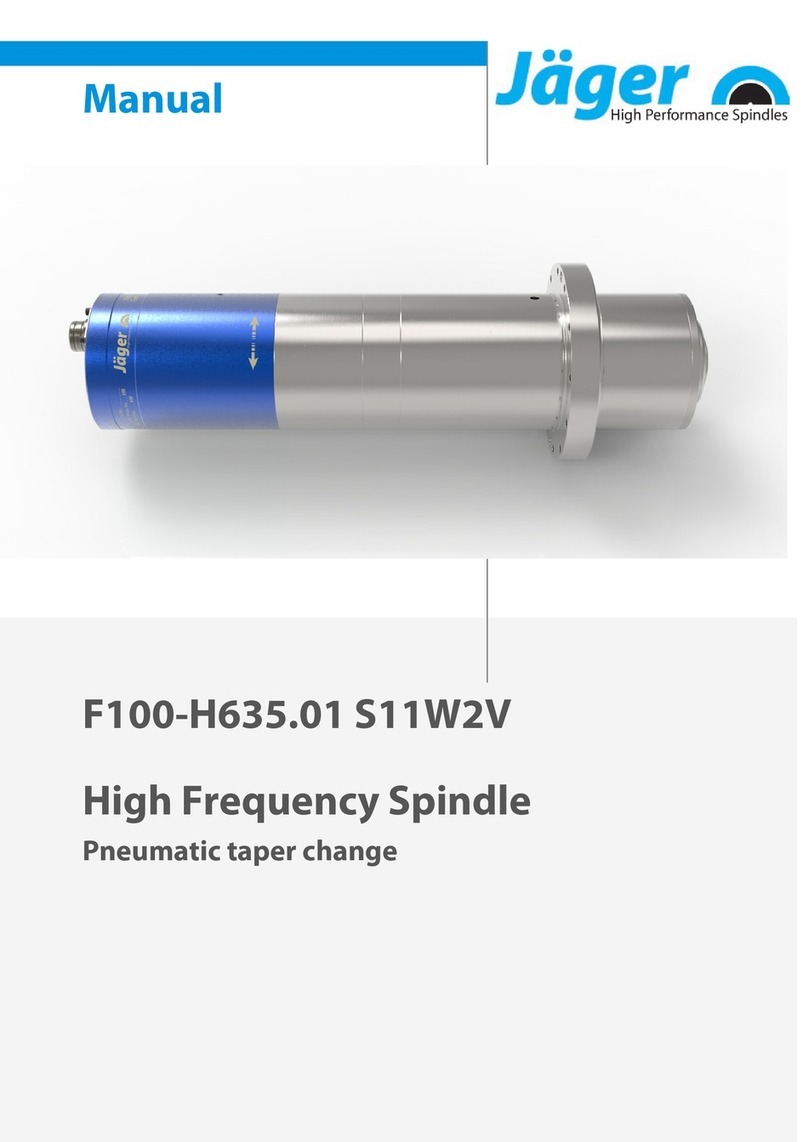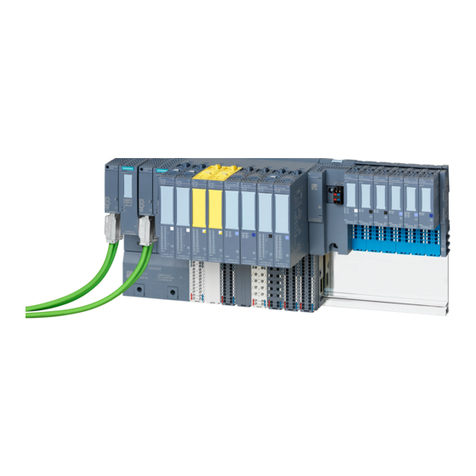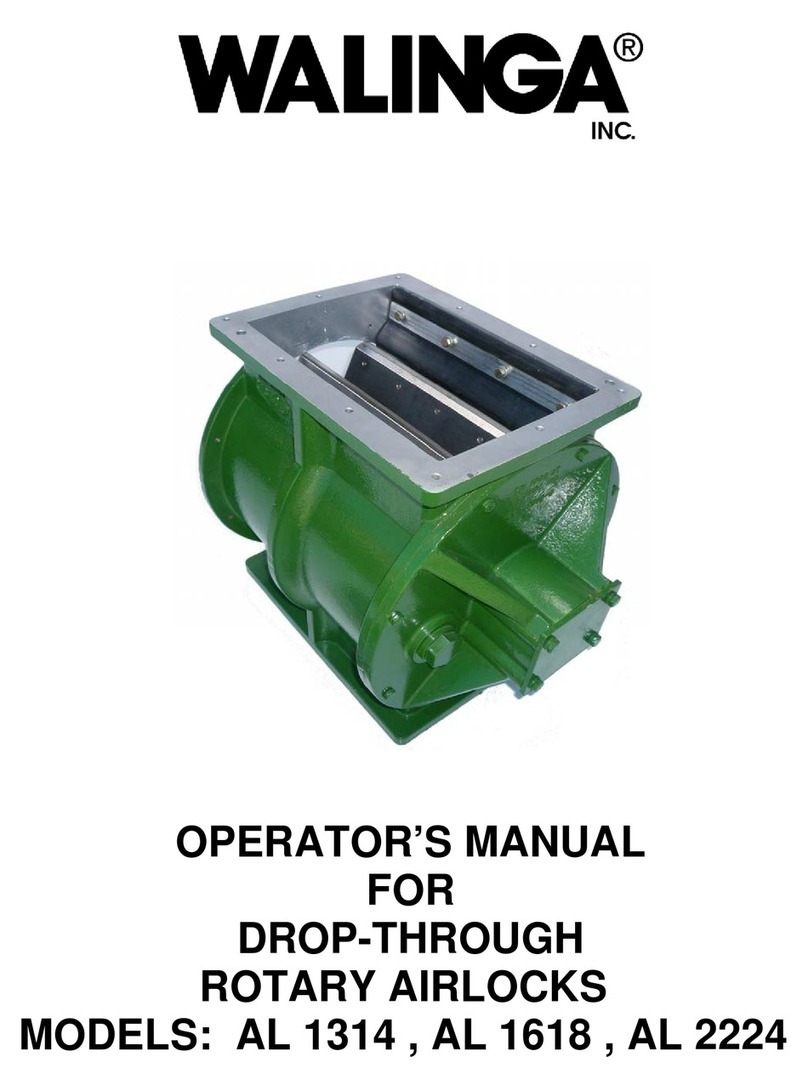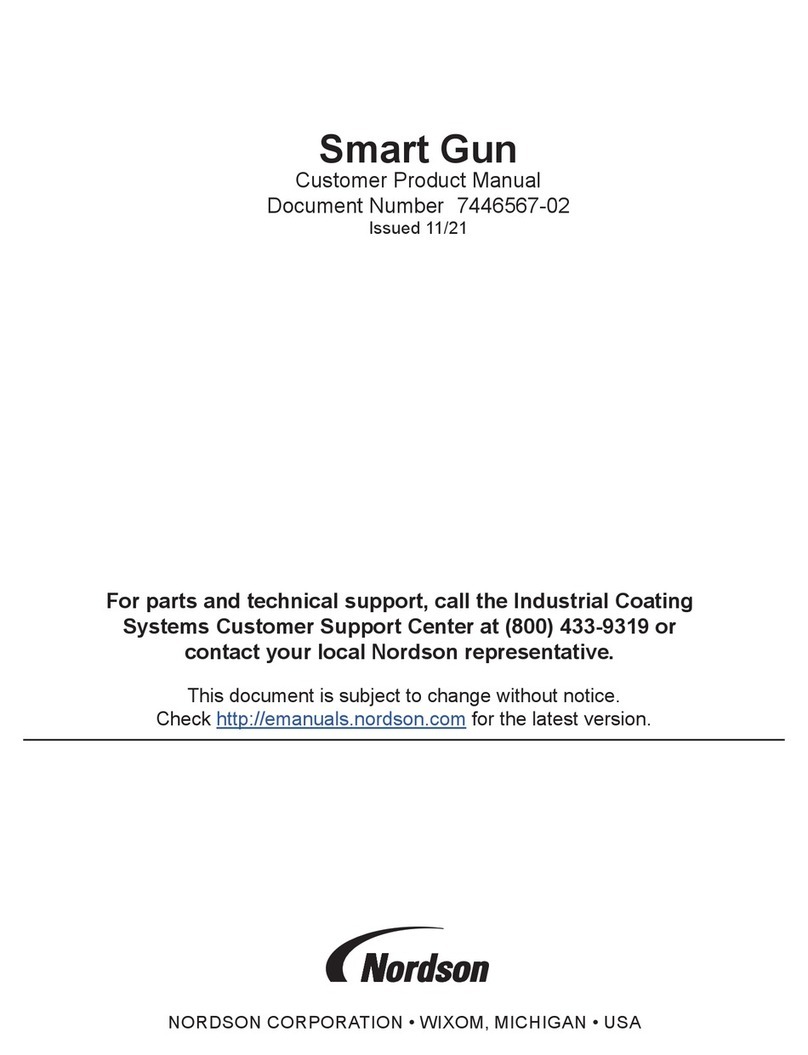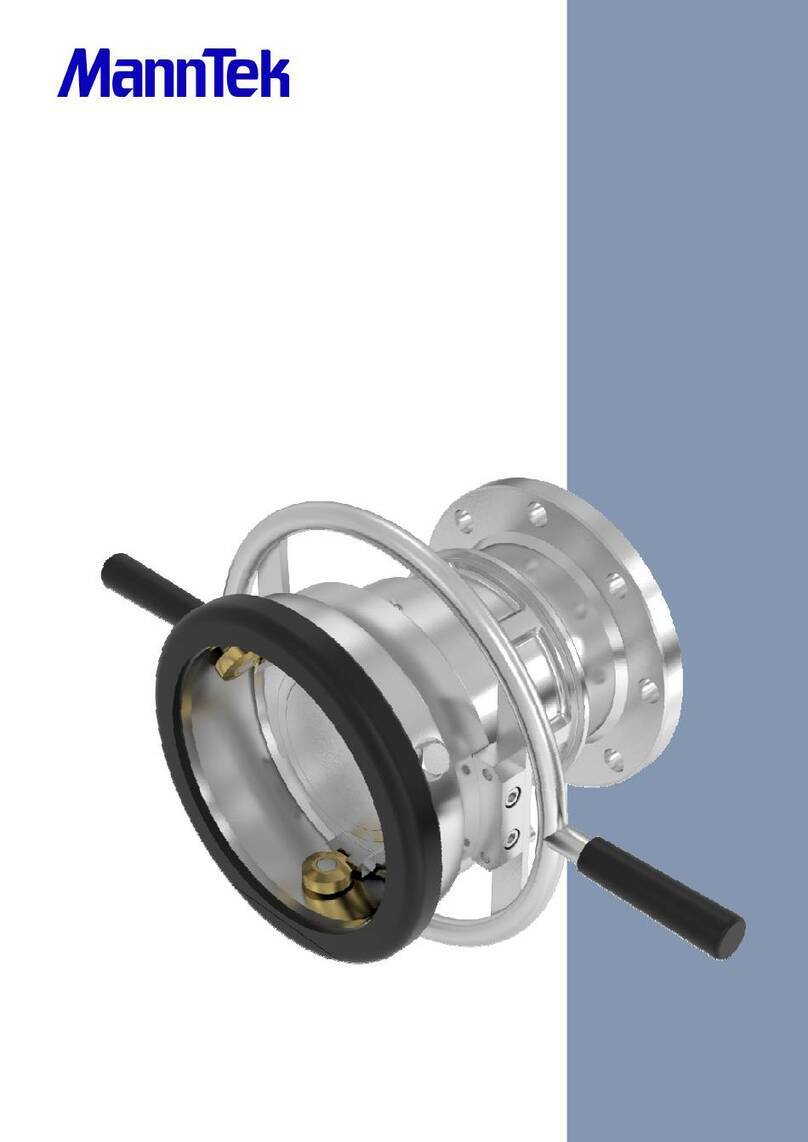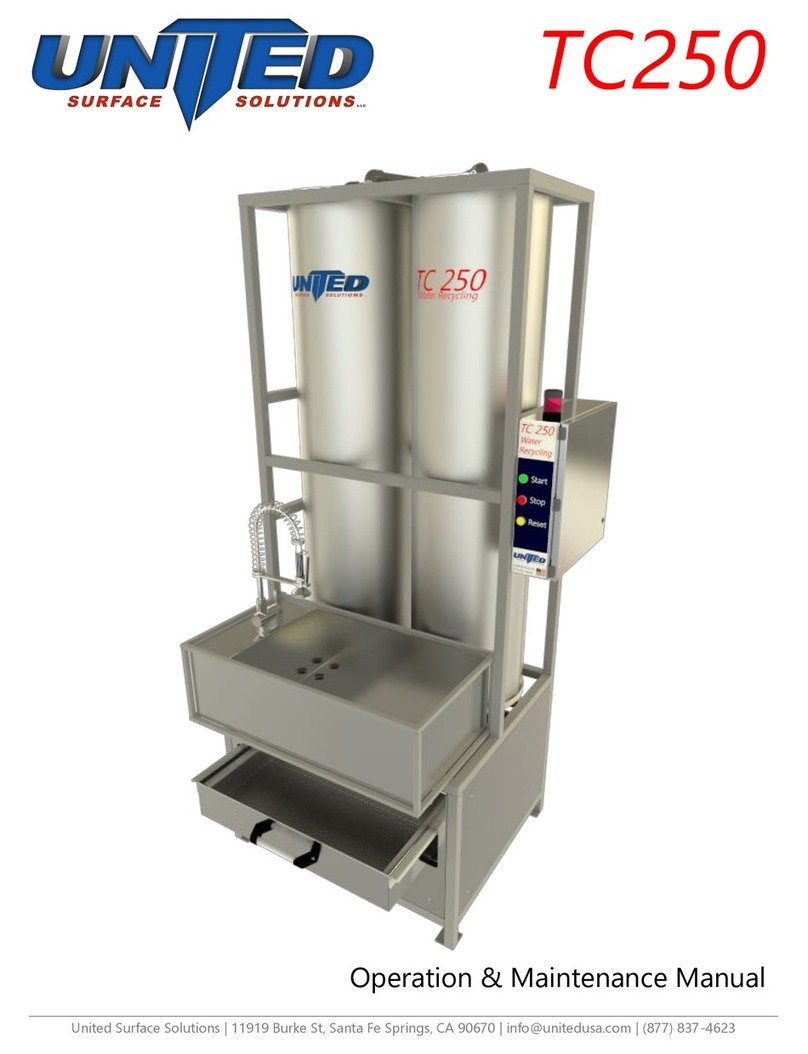Hasco Z169 Series User manual

D / GB / F 12 / 11 Z 4
Zweistufenauswerfer
Two-stage ejector
Ejecteur bi-étagé
Einbauhinweise
Mounting instructions
Instructions d’installation
Z 169 /. . .

2 HASCO
Z 169 /. . .Einbauhinweise / Mounting instructions / Instructions dʼinstallation
Funktionsbeschreibung
Der Ausstoßbolzen (1) und die Schiebe
hülse (2) sind durch die Segmente (5)
formschlüssig verbunden.
Durch axiales Verstellen der Spann
buchse (3) ist der Hub „H1“ stufenlos
einstellbar.
Bild 1
In der Ausgangsstellung liegen die
Auswerferpakete „A“ und „B“ aufeinan
der und fahren gemeinsam den
Hub „H1“.
Bild 2
Hub 1
Der Hub „H1“ wird durch den Anschlag
der Mutter (6) an die Spannbuchse (3)
begrenzt. In dieser Position geben die
Segmente (5) den Ausstoßbolzen (1)
für den Hub „H2“ frei.
Bild 3
Hub 2
Der Hub „H2“ wird durch die Maschine
bestimmt.
Die Segmente (5) verriegeln jetzt die
Spannbuchse (3) mit der Schiebehülse
(2) formschlüssig und xieren somit das
Auswerferpaket „B“.
Performance
The ejector bolt (1) and the sliding bush
(2) are positively connected by the
segments (5).
The stroke “H1“ is innitely adjustable by
axially moving the clamping sleeve (3).
Fig. 1
In the home position the ejector assem
blies “A“ and “B“ are positioned on top
of one another and move together over
the stroke “H1“.
Fig. 2
Stroke 1
The stroke “H1“ is limited by the nut (6)
being stopped by the clamping sleeve
(3). In this position the segments (5)
release the ejector bolt (1) for the
stroke “H2“.
Fig. 3
Stroke 2
The stroke “H2“ is determined by the
machine.
The segments (5) now positively lock the
clamping sleeve (3) with sliding bush (2)
and thereby x ejector assembly “B“.
Description du fonctionnement
La tige d’éjection (1) la douille d’éjection
(2) sont reliées mécaniquement par les
segments (5).
Le déplacement axial de la douille
de serrage (3) permet de régler pro
gressivement la course «H1».
III. 1
En position de départ, les batteries
d’éjection «A» et «B» reposent l’une
sur l’autre et parcourent ensemble la
course «H1».
III. 2
Course 1
La course «H1» est linitée par la butée
de l’écrou (6) monté sur la douille de
serrage (3); dans cette position,
les segments (5) libèrent la tige
d’éjection (1) pour la course «H2».
III. 3
Course 2
La course «H2» est dénie par la
machine.
Les segments (5) verrouillent mainte
nant mécaniquement la douille de ser
rage (3) avec la douille coulissante (2) et
xent ainsi la batterie d’éjection «B».
1
2
3

HASCO 3
Z 169 /. . .Einbauhinweise / Mounting instructions / Instructions dʼinstallation
Pos. Benennung Designation Désignation
Stück
Quantity
Nombre
Material / Norm
Material/Standard
Matériau / Norme
1Ausstoßbolzen Ejector bolt Tige d’éjection 11.5919 / DLC
2Schiebehülse Sliding bush Douille coulissante 11.5919 / DLC
3Spannbuchse Clamping sleeve Douille de serrage 11.5919
4Nutmutter Slotted nut Ecrou à gorge 1DIN 1804
5Segment Segment Segment 4 (6) 1.2510 / DLC
6Mutter Nut Ecrou 11.5919
Einbauhinweise
Bild 4
Der HASCOZweistufenauswerfer
Z 169 /. . . ist wahlweise über die Spann
buchse (3) mit dem Flansch Z 167/. . .
oder direkt in die Aufspannplatte zu ver
schrauben. Die Sicherung erfolgt dann
mit der mitgelieferten Nutmutter (4).
Eine Einschraubtiefe von min. 0,3 x
Gewindedurchmesser der Spannbuchse
(3) sollte eingehalten werden.
Das maschinenseitige Ende des Aus
stoßbolzens (1) ist vorzugsweise mit
dem hydraulischen Maschinenauswerfer
zu verbinden. Bei mechanischer Rück
stellung sind Rückdruckstifte in das
Auswerferpaket „A“ einzusetzen.
Der Flansch Z 167/. . . ist auch als
Zentrieransch in der beweglichen
Werkzeughälfte zu verwenden,
da die Außendurchmesser gängige
Einbaumaße haben. Die Schiebehülse
(2) mit dem vorderen Gewindeteil in
das Auswerferpaket „B“ schrauben.
Den Ausstoßbolzen (1) an das
Auswerferpaket „A“ anpassen
und hiermit verschrauben.
Mounting instructions
Fig. 4
The HASCO twostage ejector
Z 169 /. . . can be screwed either by
means of the clamping sleeve (3) to the
ange of Z 167/. . . or directly onto the
clamping plate. It is then locked with
slotted nut (4), which is supplied.
A screwedin depth of at least 0.3 x the
thread diameter of the clamping sleeve
(3) should be maintained.
The machineend of the ejector
bolt (1) should rst be connected to
the hydraulic machine ejector.
In the case of mechanical return
movement pressure pins should be
installed in ejector assembly “A”.
Flange Z 167/. . . can also be used
as a locating ring in the moveable mould
half because the outside
diameters conform to common
mounting dimensions. Screw sliding
bush (2) with the front threaded section
into ejector assembly “B”.
Match ejector bolt (1) to ejector
assembly “A” and screw together.
Instructions de montage
III. 4
Fixer l’éjecteur biétagé Z 169 /. . .
HASCO, soit via la douille de serrage
(3) avec la rondelle Z 167/. . . , soit di
rectement sur la plaque de xation. La
xation s’effectue alors avec l’écrou à
gorge livré (4).
Respecter une profondeur de vissage
minimum de 0,3 fois le diamètre de
letage de la douille de serrage (3).
L’extrémité de la tige d’éjection (1)
située du côté de la machine doit de
préférence est reliée à l’éjecteur
hydraulique. Lors du retour mécanique,
il sera nécessaire de monter des tiges
de remise à zéro dans la batterie
d’éjection «A».
La rondelle Z 167/. . . peut également
être utilisée comme rondelle de
centrage dans les demimoules mobiles
puisque leur diamètre extérieur présente
des cotes de montage usuelles.
Visser la partie letée avant de la
douille coulissante (2) dans la batterie
d’éjection «B».
Ajuster la tige d’éjection (1) à la
batterie d’éjection «A» et l’y visser.
5
4

Z 169 /. . .Einbauhinweise / Mounting instructions / Instructions dʼinstallation
© by HASCO Hasenclever GmbH + Co KG · Postfach 1720 · D58467 Lüdenscheid · Tel. +49 2351 9570 · Fax +49 2351 957237 · [email protected] · www.hasco.com 12 17 1 2 14
Technische Änderungen vorbehalten. Bitte überprüfen Sie stets sämtliche Angaben anhand unserer veröffentlichten Produktinformationen im Internet.
Subject to technical modications. Please always check all the data against the product information we publish in the internet.
Sous réserve de modications techniques. Veuillez toujours vérier toutes les données au moyen de nos informations produits publiées sur Internet.
Anwendungsbeispiele
Bild 7
Das Werkzeug ist geöffnet und die
Auswerferpakete „A“ und „B“ benden
sich in Ausgangsstellung.
Bild 8
Die AuswerferPakete fahren den
Hub „H1“. Das Paket „B“ bendet
sich in Endstellung und das Spritz
teil wird vom Innenteil getrennt.
Bild 9
Das AuswerferPaket „A“ fährt nun
den Hub „H2“ und das Spritzteil wird
vom Außenkern abgestreift.
m Wartung
Der Zweistufenauswerfer Z 169/. . .
ist regelmäßig zu warten.
Application examples
Fig. 7
The mould is open and the ejector
assemblies “A“ und “B“ are in the
home position.
Fig. 8
The ejector assemblies travel stroke
“H1“. Assembly “B“ is in the end
position and the injection moulding
is released from the inner section.
Fig. 9
The ejector assembly “A“ now travels
stroke “H2“ and the injection moulding
is stripped from the outer core.
m Maintenance
The twostage ejector, Z 169/. . .
should be maintained regularly.
Exemples dʼutilisation
III. 7
Le moule est ouvert. Les batteries
d’éjection «A» et «B» se trouvent en
position de départ.
III. 8
Les batteries d’éjection parcourent la
course «H1». La batterie «B» trouve en
position de n de course et l’article
est séparé de la contredépouille.
III. 9
La batterie d’éjection «A» parcourt
alors la course «H2» et l’article est
séparé du noyau extérieur.
m Entretien
L’éjecteur biétagé Z 169/. . . doit
être régulièrement entretenu.
7
8
9
This manual suits for next models
1
Other Hasco Industrial Equipment manuals
Popular Industrial Equipment manuals by other brands
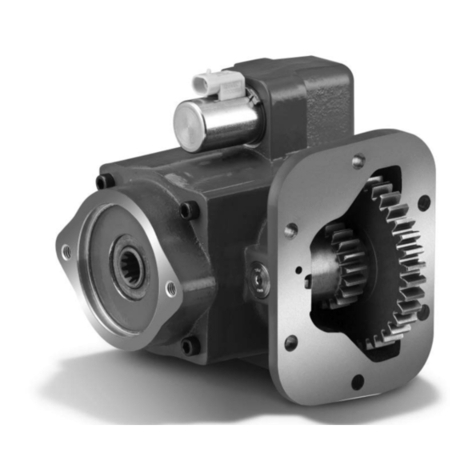
Parker
Parker 252 Series owner's manual
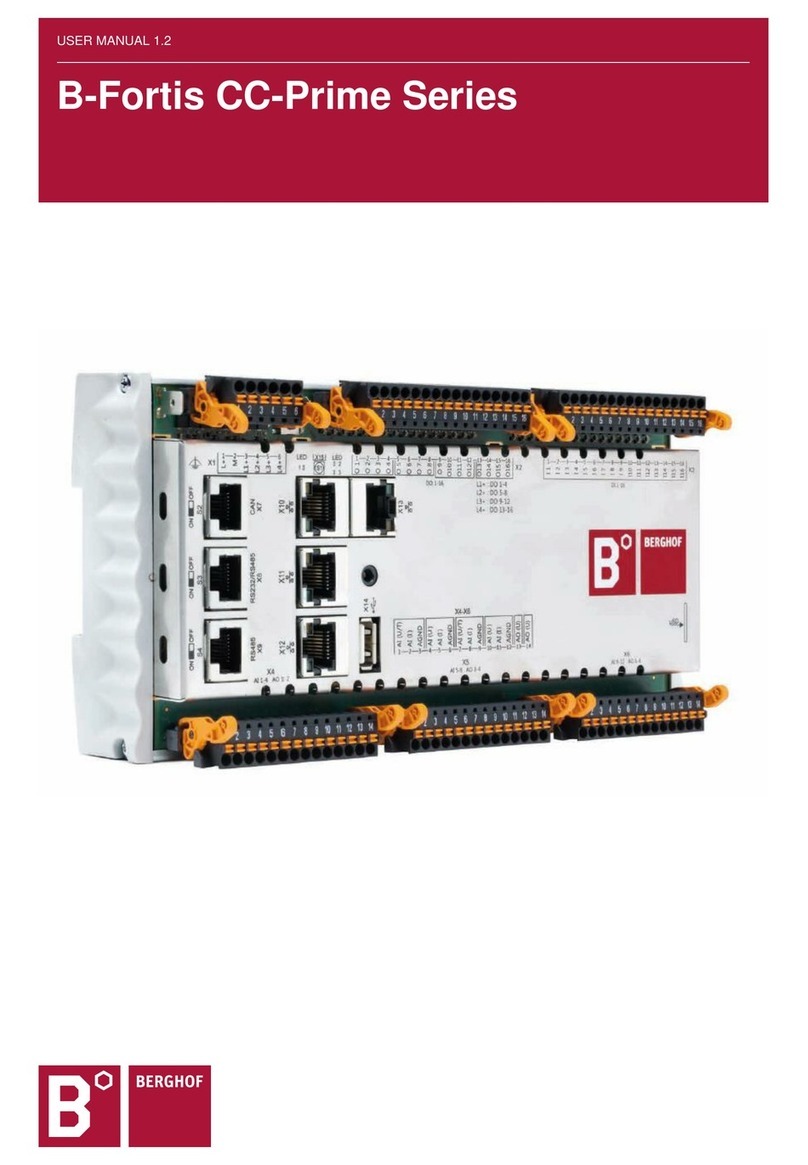
BERGHOF
BERGHOF B-Fortis CC-Prime Series user manual
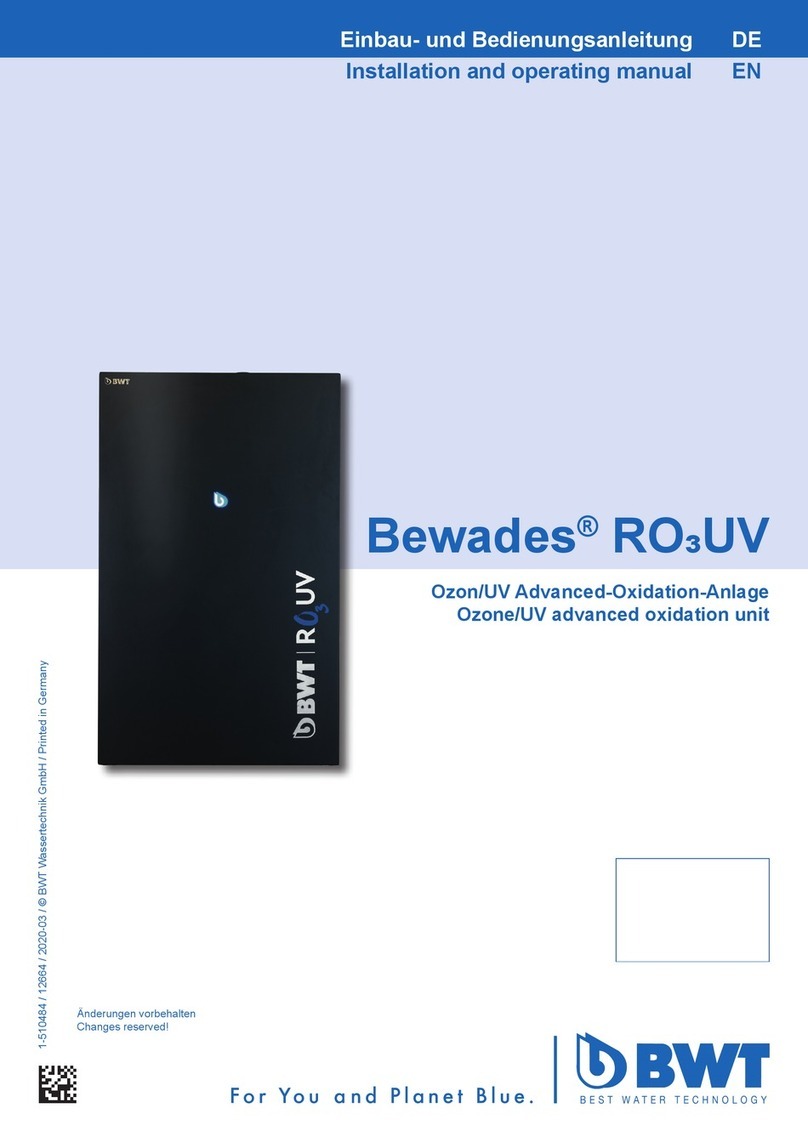
BWT
BWT Bewades RO3UV 25 Installation and operating manual
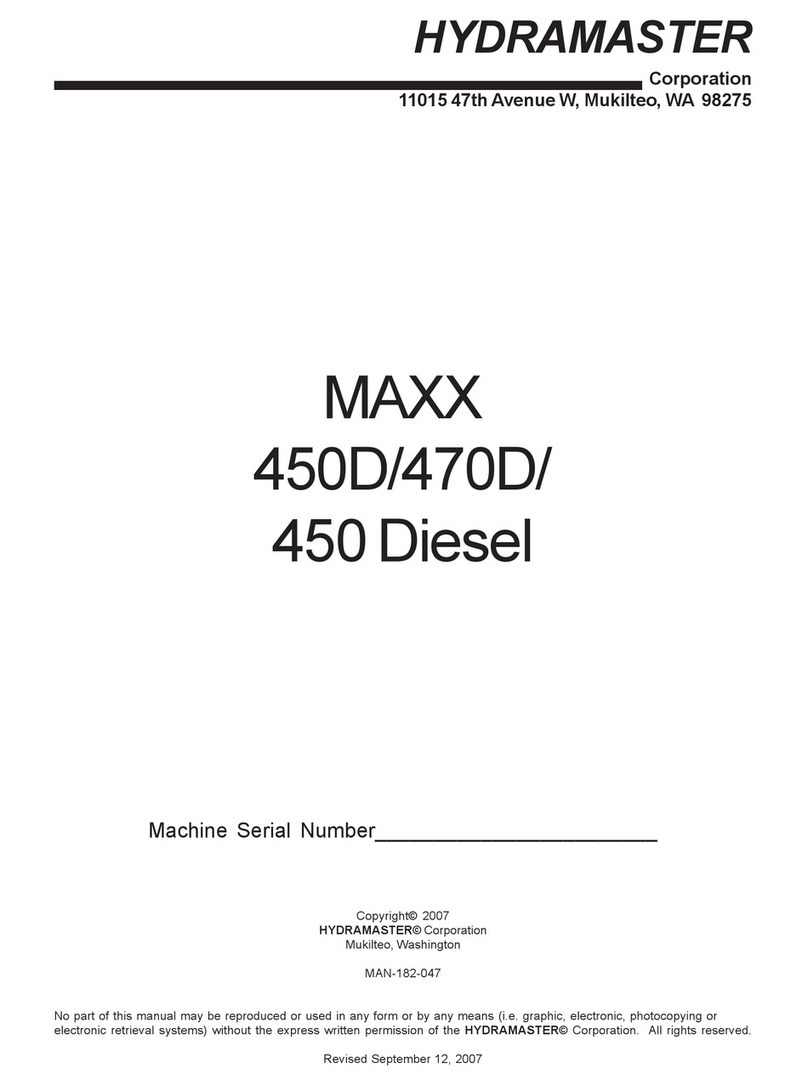
HydraMaster
HydraMaster MAXX 450D manual
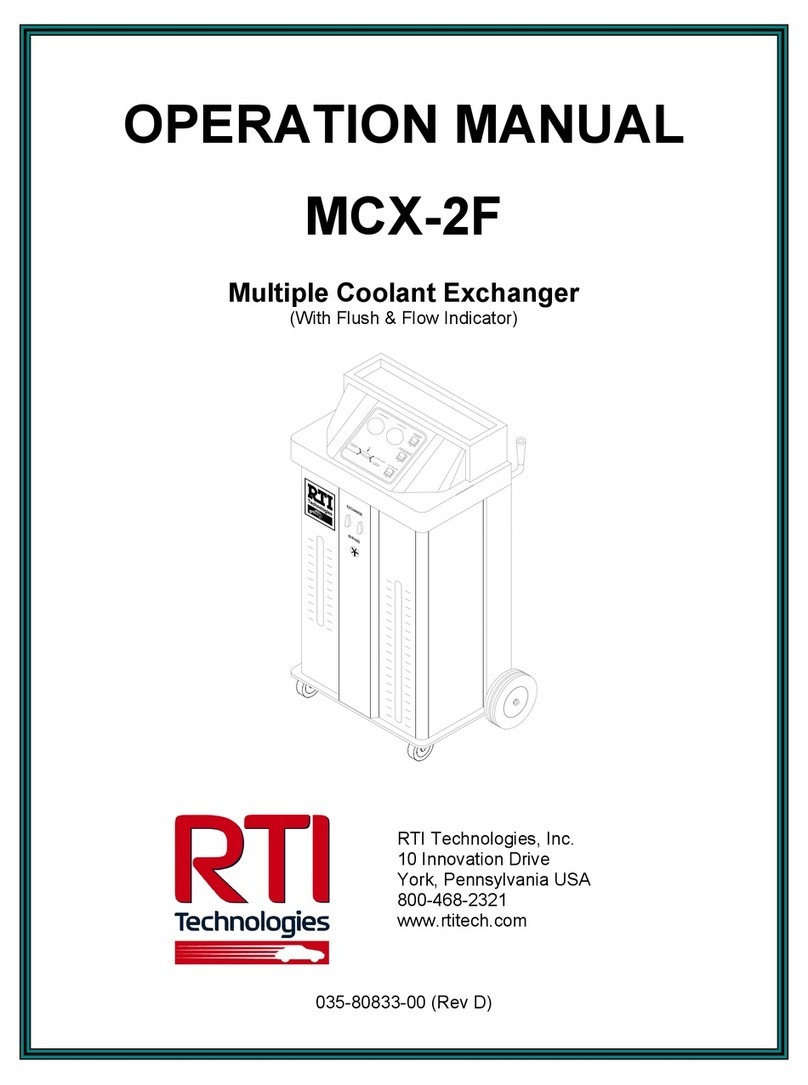
RTI
RTI MCX-2F Operation manual
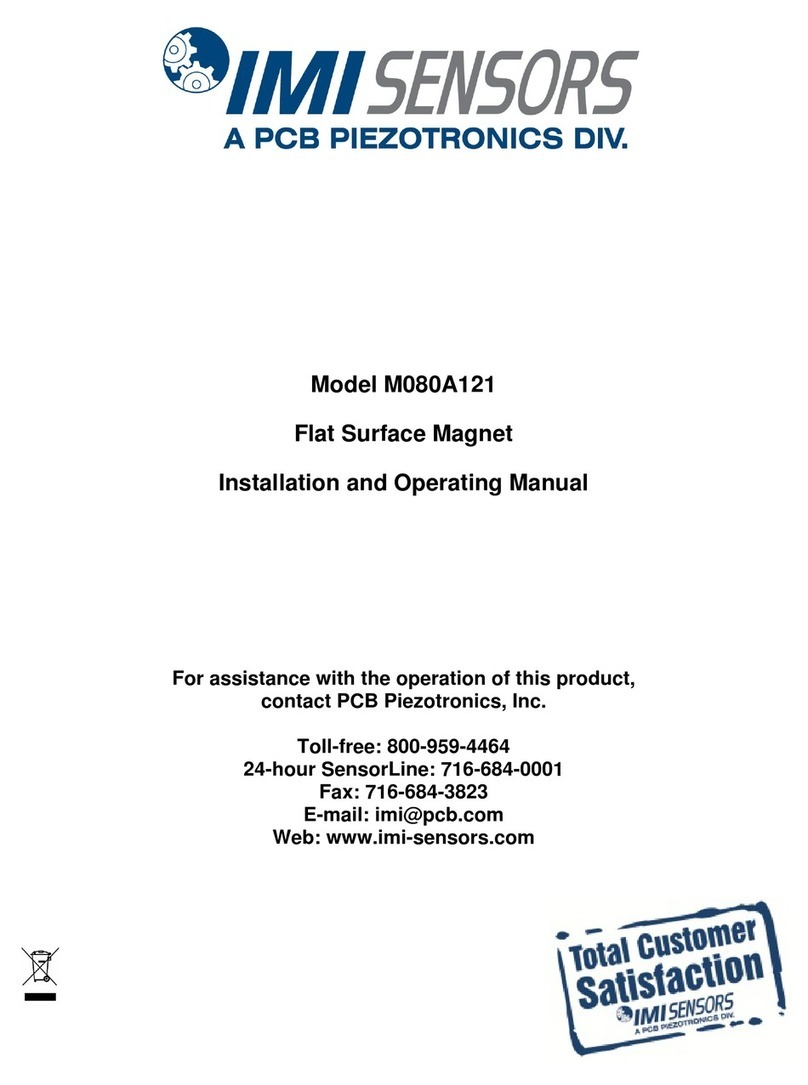
PCB Piezotronics
PCB Piezotronics IMI SENSORS M080A121 Installation and operating manual
